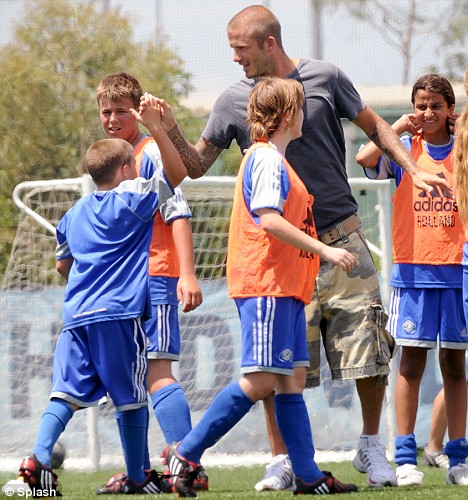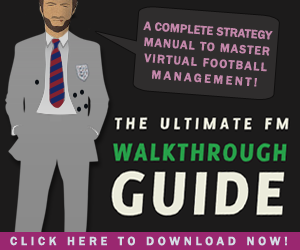-
Recent Articles
Building Your Defence: Full Backs
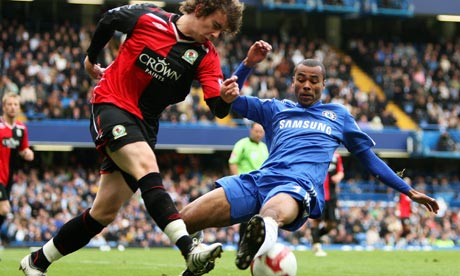 The modern full back is quickly becoming one of the most important players on the team sheet, infact even back in the days of Brian Clough, fat ed' argued that because of the space these players get in the final...
The modern full back is quickly becoming one of the most important players on the team sheet, infact even back in the days of Brian Clough, fat ed' argued that because of the space these players get in the final...False Nine Tactics
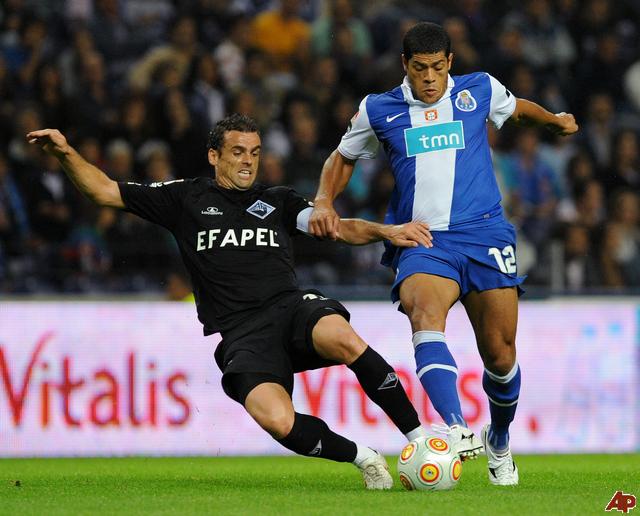 When we think about modern football trends, we think about the fall of the 4-4-2, the introduction of inverted wingers and the rise of the 4-5-1. But there is one other tactical rise that seems to have...
When we think about modern football trends, we think about the fall of the 4-4-2, the introduction of inverted wingers and the rise of the 4-5-1. But there is one other tactical rise that seems to have...An Open Letter To The Football Manager Community
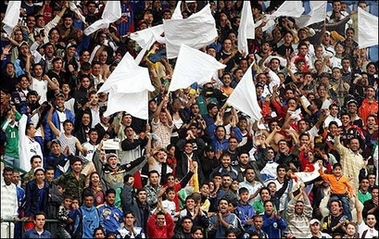 To view Sports Interactive's response, click here FM-Britain will no longer be producing regular content. Sports Interactive have objected to our content model of charging for annual strategy guides,...
To view Sports Interactive's response, click here FM-Britain will no longer be producing regular content. Sports Interactive have objected to our content model of charging for annual strategy guides,...How Will Jose Mourinho Manage at Real Madrid? (Part 7)
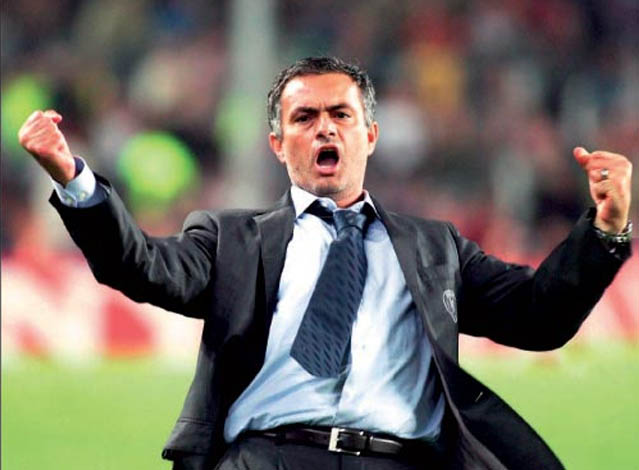 Last time around I showed you the gaping holes in my tactical plan. Against smaller teams, my players were not imposing themselves enough on the game, nor were they able to break through more disciplined...
Last time around I showed you the gaping holes in my tactical plan. Against smaller teams, my players were not imposing themselves enough on the game, nor were they able to break through more disciplined...From Giant to Underdog: Managing a Bulgarian Powerhouse (Part 3)
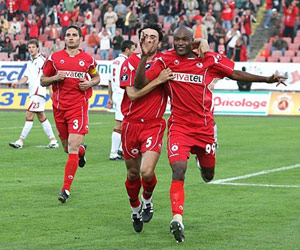 After setting the tactics for our team in the previous post, we'll look how they are going to play out in a game situation. Our first friendly will give us a chance to see how our players will handle the tactics. The...
After setting the tactics for our team in the previous post, we'll look how they are going to play out in a game situation. Our first friendly will give us a chance to see how our players will handle the tactics. The...
JOIN 8,901 READERS - SUBSCRIBE NOW TO OUR FOOTBALL MANAGER NEWSLETTER
Get the latest FM news & best community content delivered directly to your e-mail inbox!
Tactical Bible ’08: Squad Management I: Youth Development
Written by: Matt vom Brocke
Category: Management
Posted on: June 21, 2007
June 21, 2007
Squad Management I
Gaining tactical and economic success
Active squad management can be very rewarding and it can be a crucial factor for both your tactical and economic success in the game. Some players seem to ignore basic factors that have gained more importance during last years in the game, and this can be a reason for massive under-performance if added to tactical failures.
A happy squad will perform better, players with match practice will perform better, and players who never get the chance to play will attract fewer clubs willing to submit offers for them, while your key players get more and more exhausted and injury prone in the long run. If you have a well performing squad, it can be more then rewarding to use a few of your rotation players for ‘dead wood’ games or for resting key players, even if they don’t have a long-term perspective in your team.
Even rotation and backup players can attract huge bids if you manage to build up a long-term success in later stages of the game. You should ask yourself if is worth wasting millions as a top club. Performing rotation players can achieve hilarious fees in later years, which can make a difference even for top clubs, and they can help improving the financial situation of smaller clubs dramatically.
Overview of Squad Management topics
I: Youth Development
II: Subs, Rotation, Team Building
III: Staff, Media and Player Interaction
IV: Team Talks
V: Squad Discipline
VI: Tutoring
Youth Development
Youth players may take massive profit from tutoring, first team matches and loan experience. Even if they do not make it into your first team in the long run, it is worth the effort to pick out the better performers and educate them. The risk is very low, but the chance is there to offload them later for an acceptable fee to lower reputable clubs.
Loan moves
A loan move for a young player should always be rated higher then training at your club, even if you have first class coaches and facilities - as long as he is not being tutored by a senior player and learning important moves or improving his mental attributes. But you should take care that your youngsters are not loaned out as backup players and get their fair share of first team football. A recall clause may help to ensure that you are not fooled by the loaning club. These loan moves can help immensely in maturing and even increase the value of your players - often you may recognize a future star who simply failed to shine at your own team so far. There is a good chance that you may find interested clubs for players you want to sell in the long run and achieve a better price at the transfer market.
Once your youngsters are close to 20 years old, you should actively look for loan moves unless they have the chance to collect a number of first team games in cup first rounds or dead wood league games. If they get older then 22, you should either see a perspective for them in the first team or try to offload them for a good transfer value.
Recognizing the future stars
Unfortunately it is sometimes very hard to recognise promising youngsters, and the coach reports are still not very helpful in most cases. Certainly you should look at times at the team reports and see if your assistant manager is singling out youngsters as future stars. Even if he has low values for judging ability and especially potential, you should look at these future stars very closely and make a note to remind you later. If you are requesting coach reports about a young player, you should also look at the rating values of your coaches and read the reports of the best coaches. You will often note a major difference in the judgement of a player. These comments should still be taken with a pinch of salt, but they are at least slightly more helpful.
Watch closely if your young players attract big clubs. If you receive endless loan offers, you can almost be sure to have a youngster with potential, so don’t get impatient and be tempted to sell them for little money. Whenever you have a youngster who gets the coach report: ‘may never improve beyond his level’, but you see that the likes of Barca etc. are interested (this may happen later with many regens - newgens, FREDs or however you may call them), you already have a highly developed young player who may have reached very early maturity. The coach reports can be very misleading in these cases.
Stages of Development
It always pays off to monitor the performances of your youth squad and reserve teams, if you do not control them on your own. Performance always is a better argument then any coach report. But also note that there are certain stages of development. Very young players may make huge jumps from year to year if they joined your club very early, some newgens are 14 or 15 years old, depending on the country you are playing in.
During these early days of a pro career, you should stick to your good performers from 17 years upwards, no matter how negative your coach reports are. Once they have reached a minimum of physical presence, the chance is very good that the better performers will turn into good prospects - unless they already reached their maximum potential.
The next big steps seem to focus on the age between 18 and 21, usually after signing the first professional contract. By the age 22 (at the latest) you should see a rough image of the player you have educated, and you will be able to finally decide if his talent is good enough to make it into your first team or if the player should look for something else.
Facilities and Staff
If you are a rising club, always try to spend your first money on increasing training facilities and especially youth facilities. This seems to have a major influence on the quality of your future youth players. It seems to be crucial as well to have youth coaches with high judging ability and potential values. These are more important then the coaching stats, since you will be able to assign your coaches (if they don’t have a first team contract) to do the quality training and add the youth coaches to support them.
Every year you will see your new intake of youngsters, and your assistant manager will give you a short report and mention a very promising player. You should look closely at the new youngsters and eventually make a note. If your assistant recommends somebody as ‘most exciting prospect for years’ you really should look closely at this player. Sometimes it is just ‘one of the better prospects’: pin this down as well.
Contracts
Don’t let your assistant handle the contracts. While he may advise you that almost every player is not worth to receive a new contract, he will do the opposite if left alone. You will soon have a horde of low quality youngster and you will not be able to get rid of them. After reaching a certain age, about 17 years old, look at the performance and reward them with a contract. Let them go if the performance is lousy, unless you have sure-fire signs to hope it will improve very soon.
Positional training
Don’t forget to examine your youth players’ positions as well. Often they should be retrained to a different side or different position if they do have the according stats. Versatility will help you gaining more squad depth.
Making an own opinion
For those who are really slow players and enjoying every detail: managing your reserves and even youth teams for a few games can be very entertaining and often will tell you more about promising youngsters then match stats and coach reports.
Helpful links:
Tutoring Article
Making extra money from players - Sock’s guide how to use your squad to build up economic success.
Tactical Bible Credits
Crazy Gra, Millie. Written by The Next Diaby. Editor: Millie
About The Author: Matt vom Brocke
Matt’s contribution to FM-B as a whole and the tactical area in particular cannot be over-estimated. The writer of the very well-recieved Communication and Psychological Warfare and Creativo set of tactics, Matt is a key member of the Tactical Think Tank and part of SI’s beta testing Dream Team.
Download Our Tactical Theorems '10 eBook Absolutely Free

Presenting the most comprehensive tactic design and match strategy guide to the Football Manager series ever created!
Written by FM match engine beta testers, it's 60+ pages of easy-to-read concepts and ideologies for getting your team playing exactly how you want each match! It's been downloaded over 100,000+ times to date!
Find out more information about our tactical eBook
and download Tactical Theorems '10 right now!
Written by FM match engine beta testers, it's 60+ pages of easy-to-read concepts and ideologies for getting your team playing exactly how you want each match! It's been downloaded over 100,000+ times to date!
and download Tactical Theorems '10 right now!
Web discoveries
- UK Casinos Not On Gamstop
- Online Casinos UK
- Best Slot Sites
- Non Gamstop Casinos
- Casino Sites Not On Gamstop
- UK Online Casinos Not On Gamstop
- Slots Not On Gamstop
- Non Gamstop Casino UK
- Non Gamstop Casino UK
- Casino Sites Not On Gamstop
- UK Online Casinos Not On Gamstop
- Casinos Not On Gamstop
- Gambling Sites Not On Gamstop
- Non Gamstop Casinos
- Non Gamstop Casinos
- Non Gamstop Casino UK
- UK Casino Not On Gamstop
- Casino Sites Not On Gamstop
- UK Online Casinos Not On Gamstop
- UK Online Casinos Not On Gamstop
- Brand New Casinos Not Blocked By Gamstop


